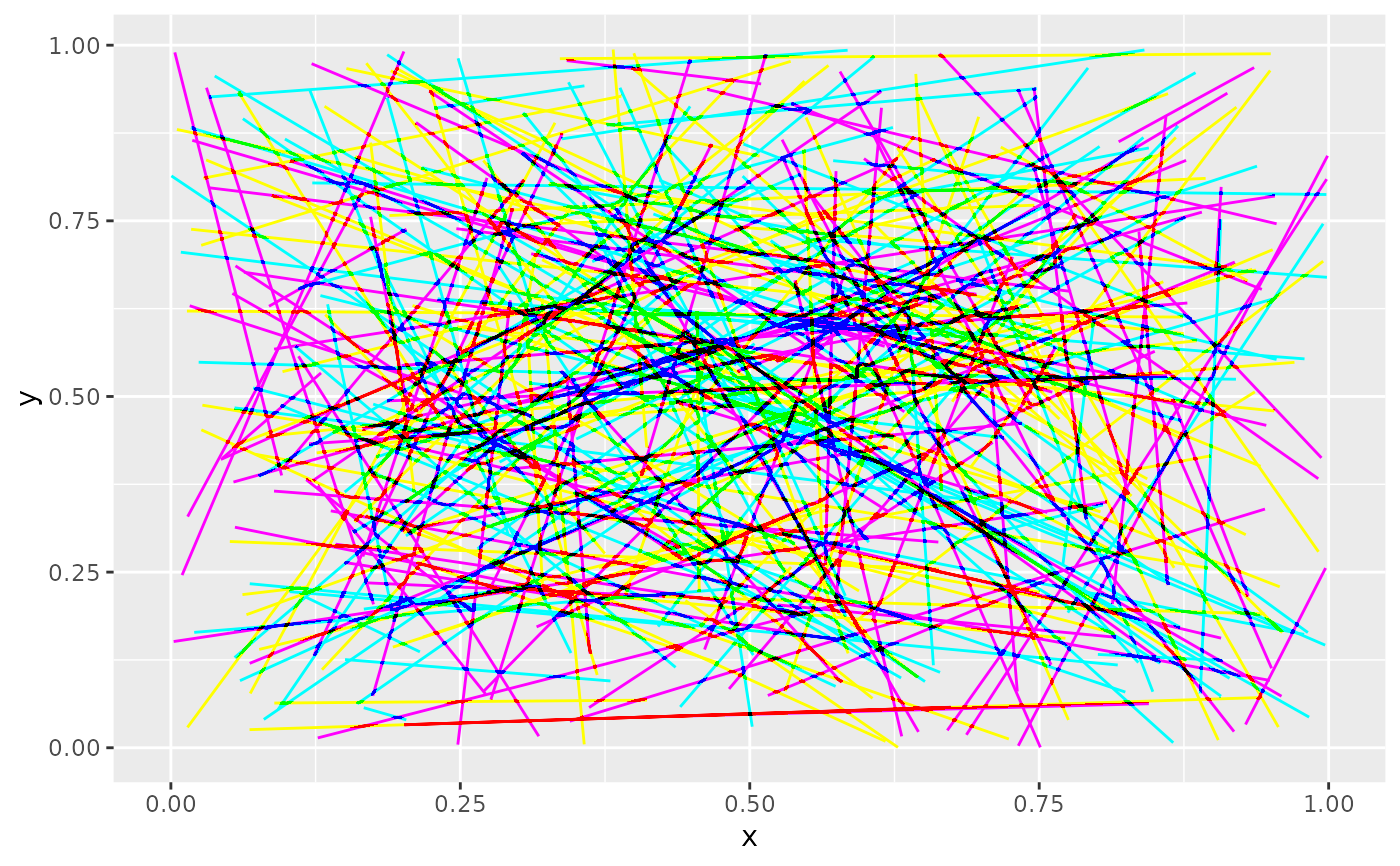Collect channels into a single layer of a specific colourspace
Source:R/colourspaces.R
as_colourspace.RdIf you need to work on single channels one by one you can use the different
ch_*() selectors. If the result needs to be combined again into a
colour layer you can use as_colourspace and pass in the required channels
to make up the colourspace. By default the alpha channel will be created as
the combination of the alpha channels from the provided channel layers.
Alternatively you can set auto_opacity = FALSE and provide one additional
channel which will then be used as alpha.
as_colourspace(
...,
colourspace = "sRGB",
auto_opacity = TRUE,
id = NULL,
include = is.null(id)
)Arguments
- ...
A range of layers to combine. If there are no channel spec set the luminosity will be used
- colourspace
Which colourspace should the provided colour channels be interpreted as coming from.
- auto_opacity
Should the opacity be derived from the input layers or taken from a provided alpha channel
- id
A string identifying this layer for later use
- include
Should the layer itself be included in the graphic
Value
A list of Layer objects
See also
Other layer references:
as_group(),
as_reference()
Examples
library(ggplot2)
segments <- data.frame(
x = runif(300),
y = runif(300),
xend = runif(300),
yend = runif(300)
)
# We use 'white' as that is the maximum value in all channels
ggplot(mapping = aes(x, y, xend = xend, yend = yend)) +
as_colourspace(
geom_segment(data = segments[1:100,], colour = 'white'),
geom_segment(data = segments[101:200,], colour = 'white'),
geom_segment(data = segments[201:300,], colour = 'white'),
colourspace = 'CMY'
)
